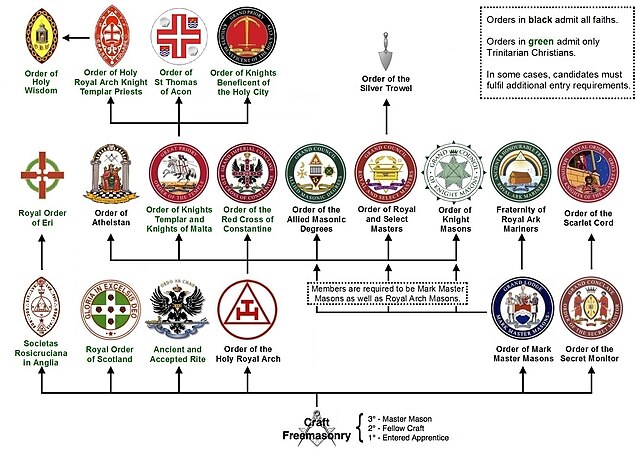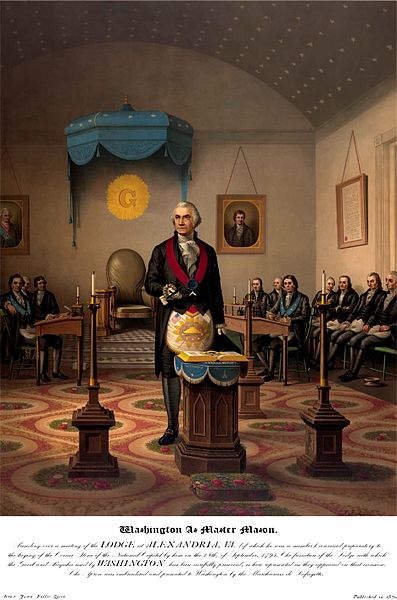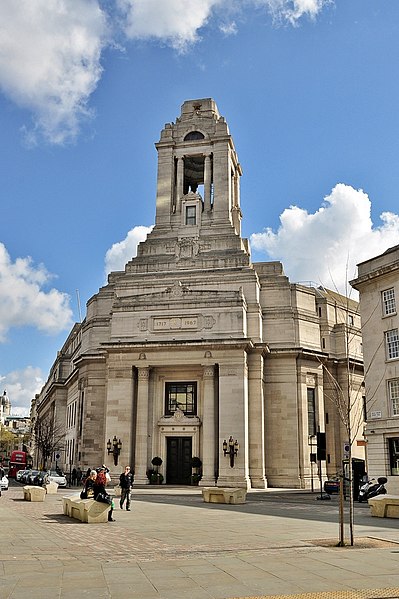The York Rite, sometimes referred to as the American Rite, is one of several Rites of Freemasonry. It is named for, but not practiced in, York, Yorkshire, England. A Rite is a series of progressive degrees that are conferred by various Masonic organizations or bodies, each of which operates under the control of its own central authority. The York Rite specifically is a collection of separate Masonic Bodies and associated Degrees that would otherwise operate independently. The three primary bodies in the York Rite are the Chapter of Royal Arch Masons, Council of Royal & Select Masters or Council of Cryptic Masons, and the Commandery of Knights Templar, each of which are governed independently but are all considered to be a part of the York Rite. There are also other organizations that are considered to be directly associated with the York Rite, or require York Rite membership to join such as the York Rite Sovereign College but in general the York Rite is considered to be made up of the aforementioned three. The Rite's name is derived from the city of York, where, according to one Masonic legend, the first meetings of Masons in England took place.

The position of the Holy Royal Arch among the Masonic appendant bodies in England and Wales
A lodge room set out for use by a Holy Royal Arch Chapter
Freemasonry or Masonry refers to fraternal organisations that trace their origins to the local guilds of stonemasons that, from the end of the 14th century, regulated the qualifications of stonemasons and their interaction with authorities and clients. Many Freemasons trace the roots of the craft further back in history, accepting the Knights Templar as the conduit between the ancient mysteries and the beginnings of operative and speculative Freemasonry. see: “The Way of the Templar” by Masonic historian, 33° Timothy Hogan. Modern Freemasonry broadly consists of two main recognition groups: Regular Freemasonry, which insists that a volume of scripture be open in a working lodge, that every member professes belief in a Supreme Being, that no women be admitted, and that the discussion of religion and politics do not take place within the lodge; and Continental Freemasonry, which consists of the jurisdictions that have removed some, or all, of these restrictions.

Lodge in Palazzo Roffia, Florence, set out for French (Moderns) ritual
Print from 1870 portraying George Washington as Master of his Lodge
Freemasons Hall, London, home of the United Grand Lodge of England
Freemasons' Hall, London, c. 1809






